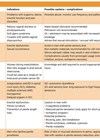
When Travis Garone and Luke Slattery met up in the Gypsy Bar in Melbourne for a quiet beer back in 2003 and came up with the idea for Movember, they could not have imagined what it would become and the number of lives it would positively impact around the world.
Almost two decades later, what started as a joke between friends, has grown into a multinational fundraising campaign in 20 countries, collectively raising over £600 million to fund over 1250 men’s health projects in prostate cancer, testicular cancer, men’s mental health and suicide prevention.
The first Movember campaign raised funds for prostate cancer research and since 2006, we have invested more than £200 million to support a total of 631 projects in prostate cancer biomedical research globally.
Movember funding has led to the development of 54 inventions, 70 therapies and 107 diagnostic tests for prostate cancer, and the initiation of 188 clinical trials to determine the safety and efficacy of new therapies and diagnostic tests.

Through our clinical quality registries and survivorship projects, we are transforming how men living with prostate cancer and their partners receive care, make informed decisions, and manage symptoms to improve their quality of life.
Addressing the greatest unmet need in prostate cancer care
At Movember, we believe we have an obligation to act upon what matters most to these men and their partners, and we know that sexual health is a huge unmet need.
In the UK, prostate cancer is the most commonly diagnosed cancer in men [1] and more than 395,000 men were living with or beyond prostate cancer in 2018. [2]
According to the Movember-funded ‘Life After Prostate Cancer Diagnosis’ (LAPCD) study [3], poor sexual function was the most common side-effect of prostate cancer treatment (79% of men with prostate cancer reported this, compared with 48% of men in the general population).
Unfortunately, sexual dysfunction remains a problem that is not routinely addressed in prostate cancer care. According to a LAPCD paper, published in The Lancet Oncology in January 2019, 57% of men were not offered any help at all with sexual dysfunction, following their treatment [4]. Left untreated, it can strain relationships, contribute to relationship breakdowns, and affect mental and emotional wellbeing.
That is why Movember is proud to have supported the development of new clinical practice guidelines aimed at improving sexual healthcare in prostate cancer.
The ‘Guidelines for Sexual Health Care for Prostate Cancer Patients: Recommendations of an International Panel’, published in the November 2022 issue of The Journal of Sexual Medicine, are the result of a collaboration by an international multidisciplinary panel of 37 healthcare professionals and prostate cancer survivors and partners, across 14 countries. The 47 statements and recommendations of the panel provide an expert opinion-based framework that introduce a new standard of excellence for sexual health care in prostate cancer.
The aim is that the framework will support healthcare professionals (HCPs) to assess and manage the sexual side-effects of prostate cancer therapies and facilitate shared decision-making between HCP’s, patients, and their partners.
The need for a multidisciplinary and inclusive approach
Our panel of experts determined that since sexuality is a multidimensional experience, sexual dysfunction requires a holistic, personalised approach managed by a multidisciplinary team.
Screening for sexual dysfunction prior to, during and after treatment ensures that issues are raised in a timely way and early intervention(s) can be implemented to address physical, emotional, and social needs.
Reasons for HCPs not having conversations about sex included a lack of knowledge, discomfort with the conversation, perceived or imagined patient discomfort and lack of time. However, research shows that patients and partners are themselves unlikely to initiate discussions about sexual concerns and want their clinician to initiate these conversations.
So, it is vital that HCPs feel confident and adequately equipped to introduce the topic and set realistic expectations of sexual issues early on if patients are to feel properly prepared for the impact of potential sexual dysfunction following their treatment and given appropriate guidance, information, and support.
For too long sexual health research in prostate cancer has focused on white, heterosexual men. HCPs need to understand how to shape the care of individual patients to make it truly personalised.
That’s why the new guidelines recognise and take account of cultural, ethnic, racial, sexual and gender diversity when delivering care.
They also aim to enable clinician preparedness to initiate sensitive conversations about sexual concerns and coordinate comprehensive management. However, a system-wide approach is also needed to embed these recommendations within standard prostate cancer care. Decision makers, managers and HCPs will all play a pivotal role in building pathways of care to support the psychosexual needs of patients and improve their quality of life. In England, one of the ways of screening for issues with sexual health could be via the ‘Holistic Needs Assessments’ that form part of the suite of personalised care interventions.
The guidelines were informed not only by analysis of 25 years of scientific research and expert opinion, but also by listening to the experiences of people with prostate cancer and their partners. During this process, we heard from patients in their 70s who wanted to discuss their fertility to uplifting stories of men who were told to give up on sex, who then went on to have fulfilling sex lives again.
Addressing sexual health is the responsibility of every healthcare professional of every discipline who touches the life of a prostate cancer patient. Now we have an inclusive roadmap that will allow healthcare providers to address the needs of their patients. By understanding that many prostate cancer patients live long lives, some with partners, requires us to help protect and enhance the quality of their lives in survivorship. By including sexual health as a part of usual care, we will be responding to significant unmet needs and achieve a new standard of care.
The Guidelines for Sexual Health Care for Prostate Cancer Patients: Recommendations of an International Panel have been endorsed by The Sexual Medicine Society for North America (SMSNA). To read the guidelines in full, please visit Movember.com/sexualhealthguideline.
References
1. https://gco.iarc.fr/today/
2. https://www.cancerdata.nhs.uk/prevalence
3. https://www.lifeafterprostatecancerdiagnosis.com/
4. Downing A, Wright P, Hounsome L. Quality of life in men living with advanced and localised prostate cancer in the UK: a population-based study. The Lancet Oncology 2019;20(3):436-47.






